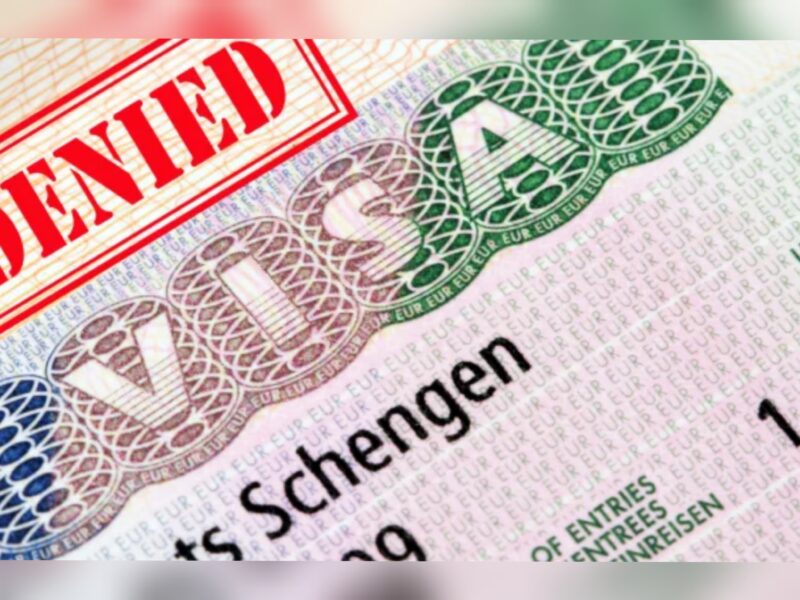Abuja, Nigeria – With the growing difficulty of obtaining Schengen visas for Nigerians, understanding the visa application process and common reasons for rejections has become more crucial than ever.
The Schengen visa, which permits short-term travel to 29 European countries, has seen a global rise in rejection rates. This surge is driven by stricter screening protocols and concerns over immigration, alongside incomplete or inaccurate documentation from applicants.
Recent statistics show that the European Union (EU) earned a staggering €3,435,200 from rejected Schengen visa applications in Nigeria alone in 2023. This highlights the financial impact on Nigerians seeking entry into the Schengen Area. Marta Foresti, founder of the LAGO Collective and a senior visiting fellow at the Overseas Development Institute, has referred to these losses as “reverse remittances.” She explained, “Visa inequality has very tangible consequences, and the world’s poorest pay the price.” Foresti emphasized the need to address this financial burden on developing nations.
Common Reasons Behind Schengen Visa Rejections
Experts have outlined several key reasons for Schengen visa denials, which Nigerian applicants should be mindful of:
Insufficient Financial Documentation: One of the primary reasons for visa rejections is the lack of adequate proof of financial stability. Embassies require detailed evidence that an applicant can cover all travel expenses, such as accommodation, food, and transport. Bank statements or sponsorship letters are typically necessary to demonstrate this financial security.
Incomplete or Inaccurate Applications: Simple errors, such as incorrect details on forms or missing signatures, can lead to immediate rejection. Missing documents, like a flight itinerary or proof of travel insurance, are common oversights that should be avoided.
Unclear Travel Purpose: Applicants must clearly define the purpose of their trip, whether for tourism, business, or visiting family. If the documentation fails to establish a legitimate reason for travel, consular officers may view the application with suspicion.
Weak Ties to Home Country: Perhaps the most significant hurdle is proving strong ties to Nigeria. Applicants must show evidence of employment, business ownership, or family connections to assure consular officials that they have compelling reasons to return after their trip. Failure to do so can result in rejection.
Stricter Visa Evaluation Processes
Visa applications are now being scrutinized more closely, with embassies requesting additional information in many cases. Consular officers are tasked with verifying every detail to ensure applicants have a genuine purpose and sufficient reasons to return to their home country. Given these stringent requirements, thorough preparation is essential.
Essential Documentation Checklist
To avoid the common pitfalls, Nigerian applicants should ensure they have the following documents:
- A fully completed and signed visa application form.
- Two recent passport-sized photographs taken within the last three months.
- A passport valid for at least three months beyond the planned departure from the Schengen Area.
- Detailed flight itineraries, including dates and flight numbers.
- Proof of travel health insurance, covering at least €30,000 in medical expenses. The insurance must be valid in all Schengen states and cover the entire duration of the trip, including medical repatriation and emergencies.
- Proof of accommodation, either through hotel reservations or an invitation letter from a host.
- Bank statements or a sponsorship letter demonstrating financial means for the trip.
- Proof of payment for the visa fee, which typically amounts to €90.
- Travel Insurance Requirements
According to SchengenInsuranceInfo.com, travel health insurance must cover medical emergencies and be valid throughout the Schengen Area. It should have a minimum coverage of €30,000 (about $33,000) and cover hospitalization and medical repatriation.
Expert Tips for a Successful Application
To improve the likelihood of visa approval, Nigerian applicants are advised to:
- Double-check that all documents are complete and accurate.
- Clearly outline their travel itinerary and purpose.
- Provide concrete proof of sufficient financial resources.
- Demonstrate strong ties to Nigeria through employment or family connections.
- Be transparent and honest in their application.
- Consider seeking professional guidance or consulting visa experts.
With meticulous planning and adherence to these guidelines, applicants can boost their chances of securing a Schengen visa. As the stakes remain high, careful attention to detail is the key to navigating the increasingly complex application landscape.










Join our Channel...